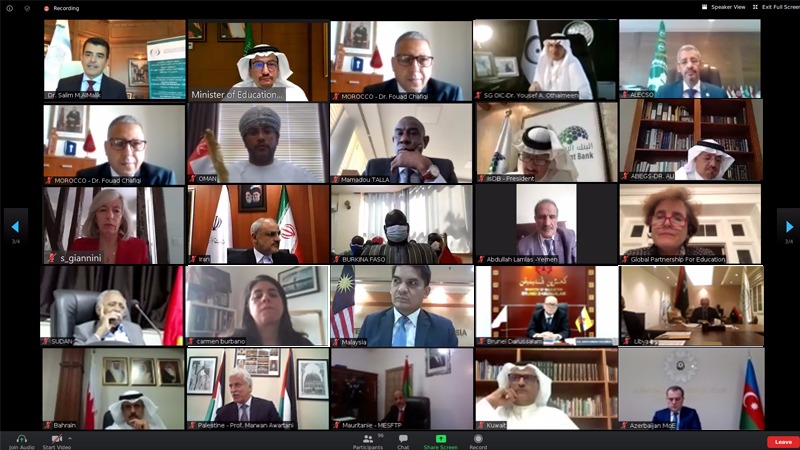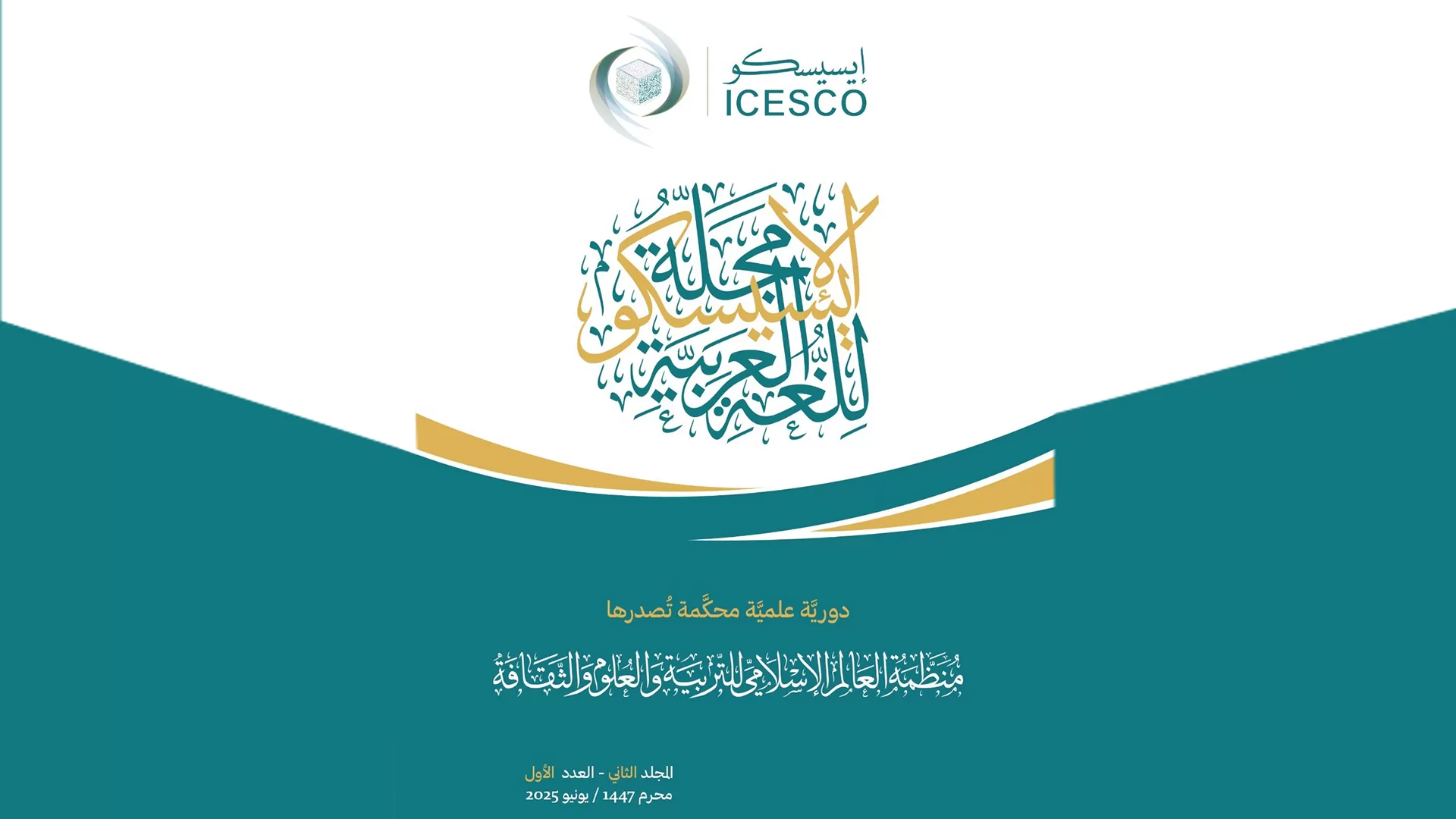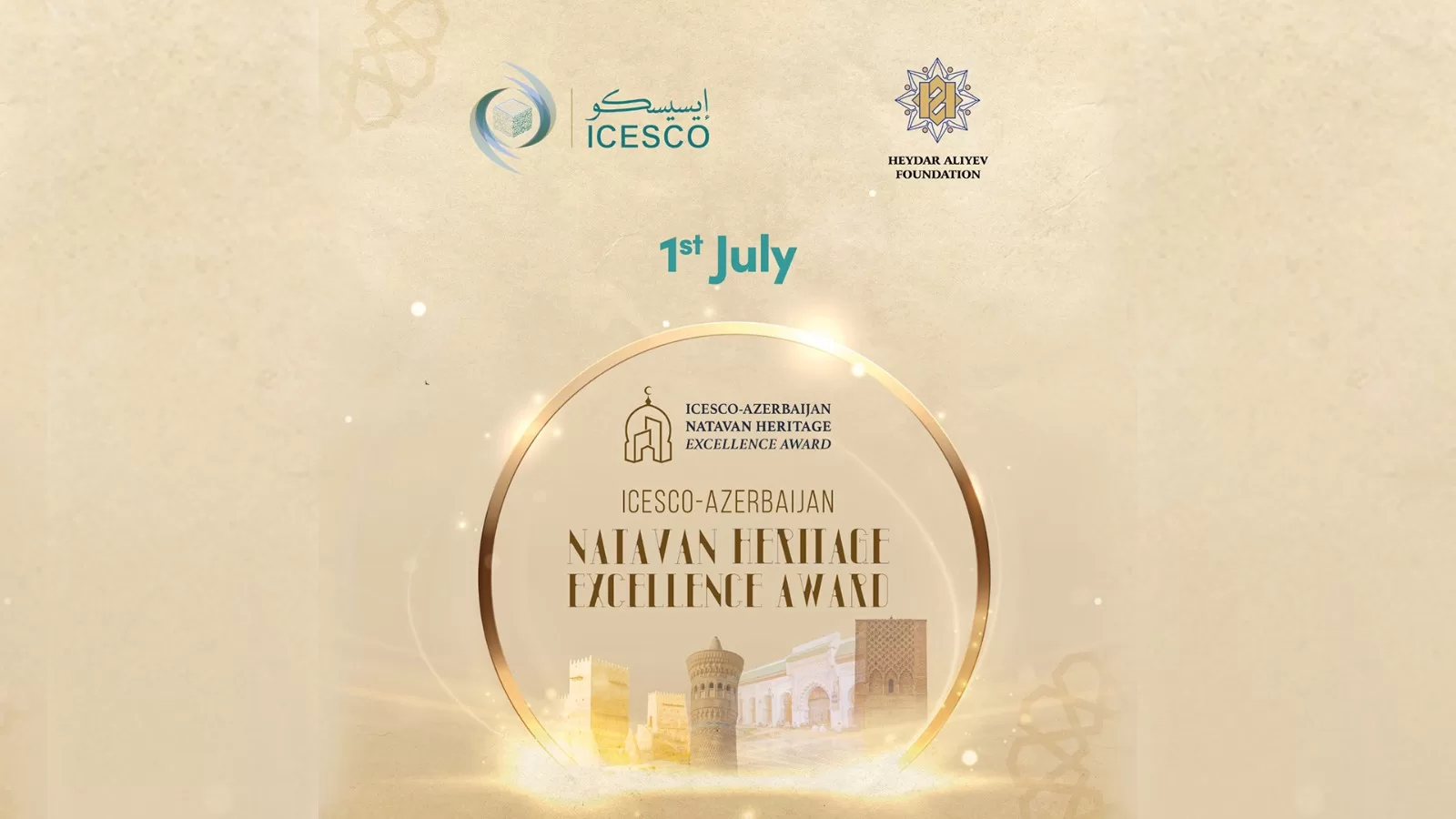
With the participation of 43 countries.. Extraordinary Virtual Conference of Education Ministers in Islamic World kicks off

14 May 2020
The Extraordinary Virtual Conference of Education Ministers in the Member States of the Islamic World Educational, Scientific and Cultural Organization (ICESCO), kicked off today via videoconferencing, under the theme “Education Systems in the Face of Crises and Emergencies (Covid-19)”, saw unprecedented participation in education conferences. It brought together participants from 43 countries, of whom 38 were represented by ministers of education, and 5 by deputy-ministers or under-secretaries, in addition to the participation of 10 heads and directors from 12 international organizations.
The opening session of the Conference, held by ICESCO, in cooperation with the Ministry of Education of the Kingdom of Saudi Arabia, President of the Conference, started at 12:00 PM (Makkah Al-Mukarramah time) with an address by Dr. Hamad Bin Mohammed Al-Shaikh, Minister of Education of the Kingdom of Saudi Arabia, President of the Conference, who welcomed the participants and lauded ICESCO’s Organization of this Conference, while reaffirming that the responsibilities shouldered by the ministries of education have doubled during Covid-19 pandemic.
In his address, Dr. Al Shaikh stated that “we have emerged from the trauma of this surprise and acquired expertise in dealing with the crisis. The Kingdom of Saudi Arabia has started providing distance education services years ago. The Kingdom has modernized this system that it now has 20 live channels of Ain educational channels. We have also provided access to educational content on various social media platforms and the channels of Saudi universities. Moreover, these systems will continue to operate even after the crisis to solve the problems of school dropout.”
Afterward, Dr. Yousef bin Ahmad Al-Othaimeen, Secretary-General of the Organization of Islamic Cooperation (OIC), gave an address wherein he highlighted that the OIC and its various organs have launched many initiatives as part of the fight against Covid-19, and reaffirmed that the OIC and its organs had paid great attention to neediest Member States.
Dr. Al-Othaimeen also underscored that the Member States are burdened with the responsibility to work collectively amid the lack of any treatment or vaccine for Covid-19 while stressing the need for preparedness to the post-Covid-19 period and ensuring the return of students to their schools.
In his presentation, Dr. Dandar Hajjar, President of the Islamic Development Bank Group (IsDB), said that investment in education and training had had the attention of the Bank since its establishment 45 years ago, explaining how the Bank has succeeded to finance 20 educational projects with a total value of US$ 5 million and provide around 17 thousands educational scholarships.
Moreover, Dr. Hajjar reaffirmed that “the Bank’s attention to investment in education stems from three major convictions: first, education is part of human rights; second, human-being is the focus of development; third, the willingness to achieve Sustainable Development Goals, particularly SDG 4.”
The floor was then given to Ms. Stefania Giannini, Assistant UNESCO Director-General for Education, who highlighted the dire need for resilience to this crisis, which uncovered large technical gaps between world countries. “Around 100 million students globally are deprived of their right to pursue their studies due to the lack of internet communication technologies. It reaffirms the importance of education in our schools,” she explained.
Furthermore, Ms. Giannini stated that Covid-19 crisis has accelerated the digital transformation and showcased the need for the establishment of an international coalition for education, which UNESCO called for last March; the world is now facing three major challenges related to this pandemic: ensuring all students’ right to education, strengthening student’s resilience, and the digital revolution. Ms. Giannini also praised the constructive cooperation between UNESCO and ICESCO.
At the close of the opening session, Dr. Salim M. AlMalik, ICESCO Director-General, made an address wherein he stressed the need to rehabilitate the educational systems in Muslim countries to be able to counter the future challenges and adapt to crises and emergencies through the development of infrastructure and training programmes, and use of modern technologies.
In addition, Dr. AlMalik reiterated that “the Organization’s full and unconditional willingness to provide the Member States with access to its expertise to find solutions to the problem of school dropout which stood at 30% in pre-crisis levels, but it is likely to increase due to the disruption of the educational process to reach levels threatening the quality of education. It requires us to address this challenge according to a sound scientific approach”.



